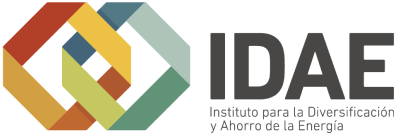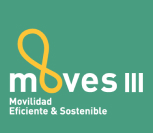
Speaking with Juan Carlos Baumgartner, architect, founder and director of spAce
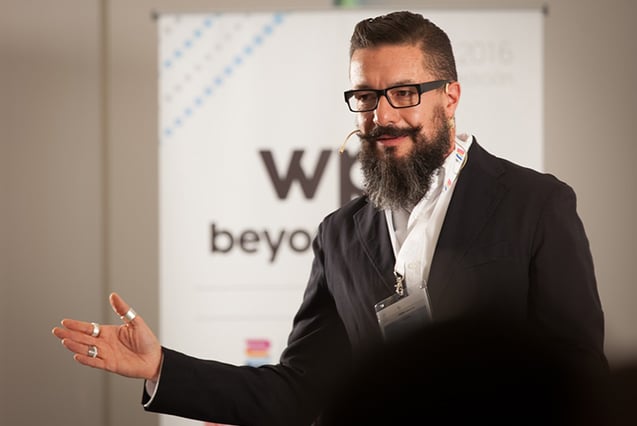
We talked with Juan Carlos Baumgartner on his recent trip to Spain, a Mexican architect and designer who has trained in Mexico City, San Francisco, Chicago and Milan. For two decades he has led the international architecture firm SpAce, that has been awarded more than 100 international awards for its vision in the design and creation of corporate spaces, hotels and educational spaces. This year the NYC Post included him in the list of Top 10 Architects To Look Out For In 2022.
Juan Carlos is currently immersed in the study of Neuro Architecture, working with researchers from all over the world. His objective is to design spaces that promote happiness, developing architecture to heal the soul. His first literary work, "Office as a Tribe", used this approach, presented at the last Feria Habitat in Valencia and in which he proposes a more human future for workspaces.
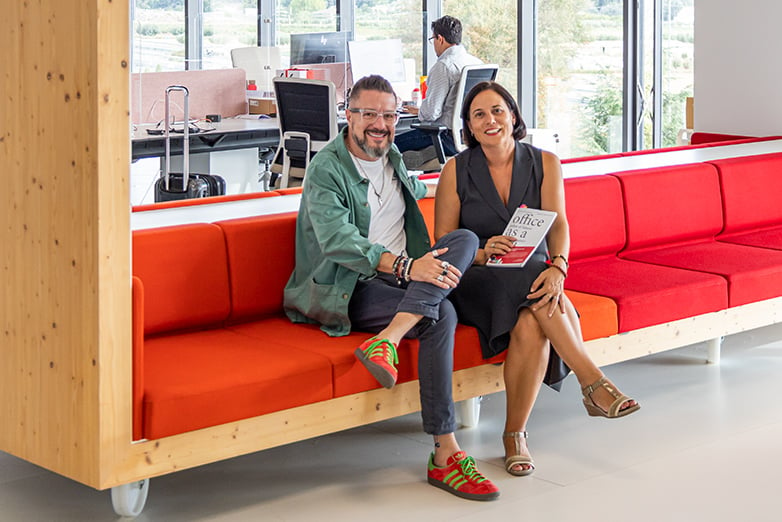
What does a Tribe office look like?
We are cavemen with sophisticated tools. From this idea we started to question what cavemen did to build society, to bring out the human side and promote or align the values of the group, to generate a sense of transcendence and unity. And it turns out that all this is present in the tool that the cavemen had and that we used for thousands of years and that is called TRIBU.
When you put the message like that, with a metaphor that is close to the people, with elements that everybody is able to recognise, like, for example, what a campfire is; we all know that the campfire had a role of sitting around it and sharing stories. Metaphors are one of the most powerful tools for human learning because they are able to transform a complex and very abstract challenge into a much easier dimension.
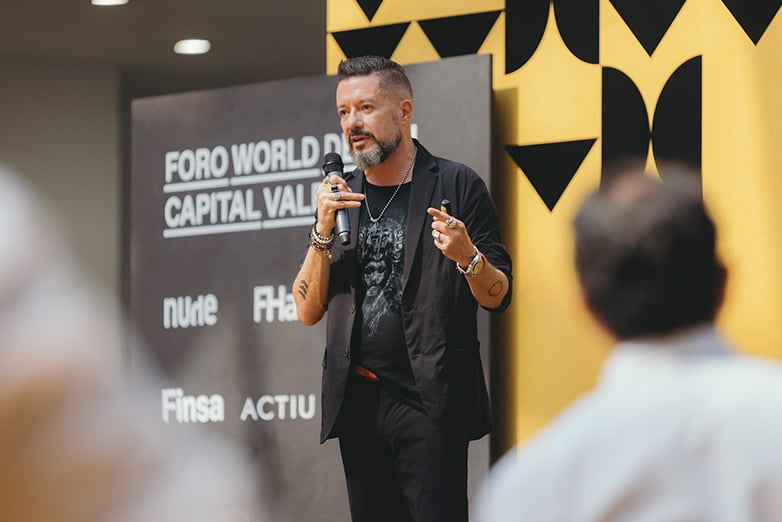
Building the metaphor of the Office as a Tribe, we question what the new role of the office should be, with the intention of humanising the workspace experience. What makes us stand out from other organisations, what is going to make us successful in this transition towards the liquid society that Bauman proposes and how can I use space to exploit it, to help human beings get the best out of themselves?
The future of architecture would have to be an architecture that generates well-being. We live in societies with a high percentage of people with depression, we have to work so that architecture not only doesn't do any more harm to these people, but is also an architecture that heals, in which you show up at your workplace in the morning and leave in the afternoon feeling better than when you came in.
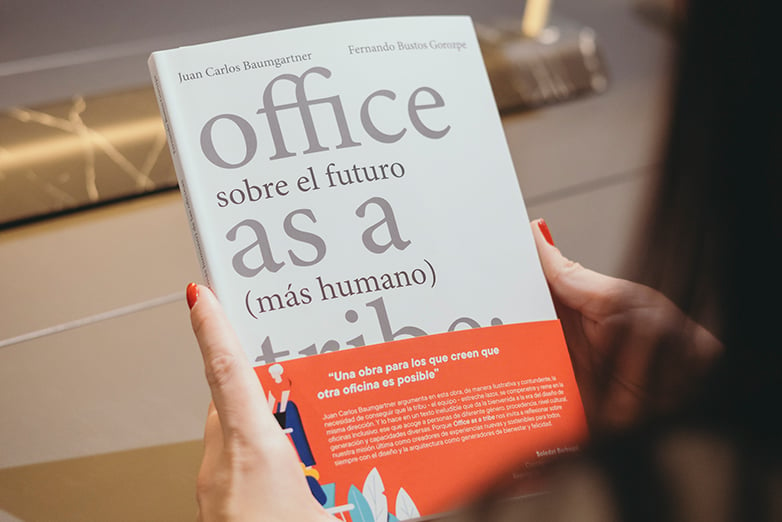
So do we need to rebuild our TRIBU?
Indeed, we will have to look back to study our origins and detect what things have worked for thousands of years. Possibly, those of us in charge of building offices have extra responsibility in this new role, since the office is one of the most important public places in society. We need offices for more important things than just productivity and efficiency and, in general, making money for the owner of the company. We need public spaces that humanise the experience and that help build society, because individuals who do not have a tool to build society are destined to fail. In the vast majority of countries, these public spaces have been replaced by shopping centres that do not have these roles of gender, of transcendence and unity.
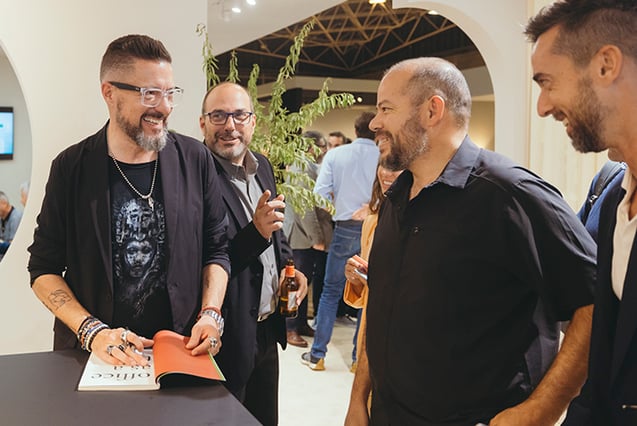
You were talking about an extra responsibility for all those who build offices, what would this responsibility be when designing an office?
For the first time in the history of mankind or the history of offices we have to start asking ourselves if the office does not have additional responsibilities to society other than productivity and efficiency. The world has become obsessed with the technological side and very few people are looking at the human side. I see organisations super concerned about digitalisation, investing a lot of money in technology, in monitoring systems, in making buildings intelligent. However, I think very few organisations have stopped to look at what makes us human and how I can humanise the office experience, how I can make the office help me exploit what makes us unique as human beings.
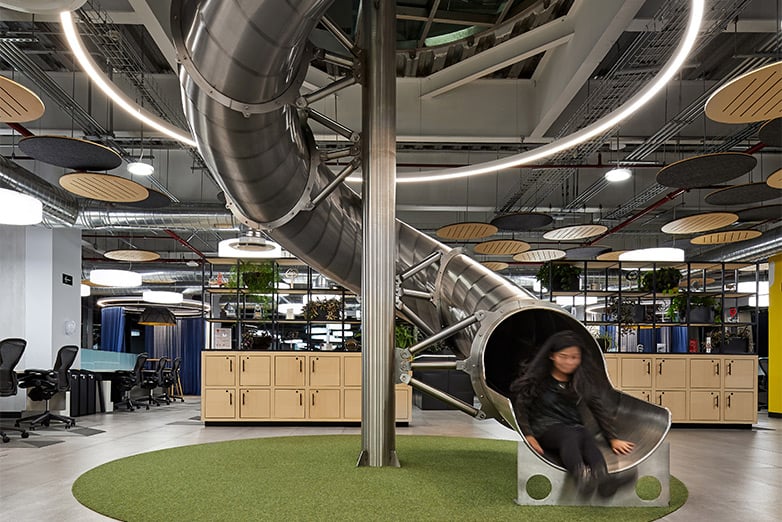
Successful organisations are going to be the ones that can live in a kind of paradox; embrace technology, because there is no going back, it is not the enemy, it is simply a tool that can be a wonderful tool if we know how to take advantage of it. Success lies in striking the balance between embracing technology and recognising our humanity, that is where the happiness and success of organisations and happiness as individuals and as a society may lie.
I hope to sow the seeds of a responsibility that goes beyond the near sighted vision where the office is useful for making money, giving it a more transcendental purpose instead.
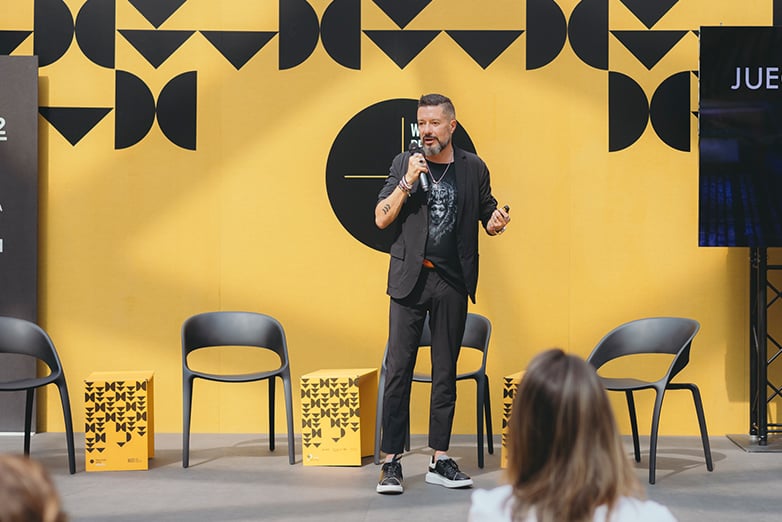
You have spent years studying and researching how neuroscience and neuroscience applied to architecture is the basis of all these new approaches in the design of the Office as a Tribe.
In my student years, I was impressed by how many of the psychologists knew more about the impact that space had on people than most of the architects I knew. From there I tried to get the Architecture School to allow me to skip subjects like Structures and things that didn't interest me, and instead take psychology and philosophy courses. This never happened, but since then I have been very interested in the relationship between the built space and our cognitive processes.
According to scientists, our cognitive system is made up of three elements: the brain, the body and space. Literally, from a cognitive point of view, space is part of our cognition and there is a part where your brain can't tell where your body and mind end and space begins. There is a phrase that I love from the French philosopher and father of phenomenology, Maurice Merleau-Ponty who said that “a chair is a chair until you sit on it, when you sit on the chair the chair is you and you are the chair.”
It is scientifically proven that the body appropriates objects and spaces to use them in cognition. In this regard, once you use the tool, your body appropriates that tool, reaching a point where your body no longer knows how to distinguish between where your body ends and where the tool begins.
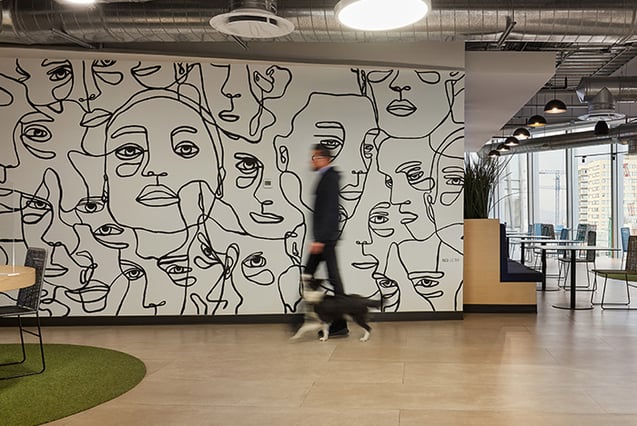
How will it be possible to make this change that you propose, and are organisations really prepared to take on these new premises?
We are going to live through a transition between a solid world, in a solid society, and Bauman's liquid society, which you can't even grasp, which is slipping through your fingers because of how dynamic it is, how fast it changes, measured by the democratisation of knowledge through technology.
All those clients that I had not been able to convince to humanise their spaces were convinced by the pandemic. I am amazed at how many clients I no longer have to push to say: hey, the role of the office should be more social and the role of the office should have more complex responsibilities to society than we have understood. If you don't have happy people you are not going to achieve your goals.
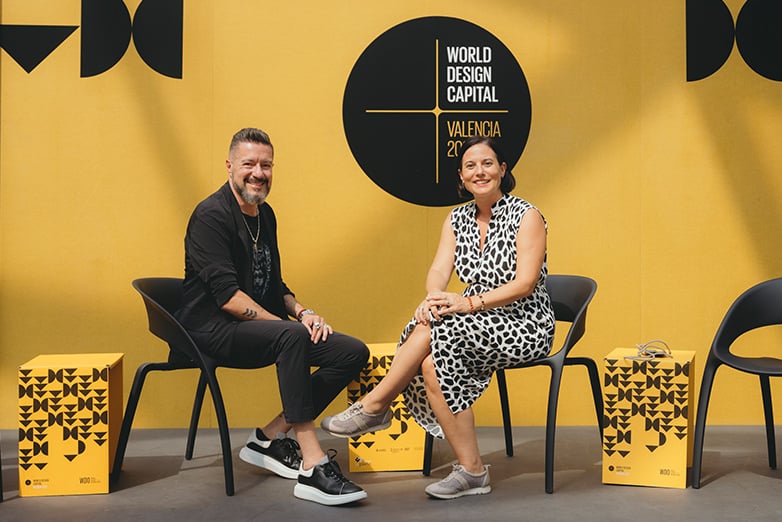
There is also a generation of digital natives who are children aged 10/12 years old, children who can move between the digital and physical world without any distinction and without any problem, it is their reality. It is the generation they call Phigital, a mixture of physical and digital, they move naturally between the two worlds. To make it more complex, this generation will soon be present in the workplace.
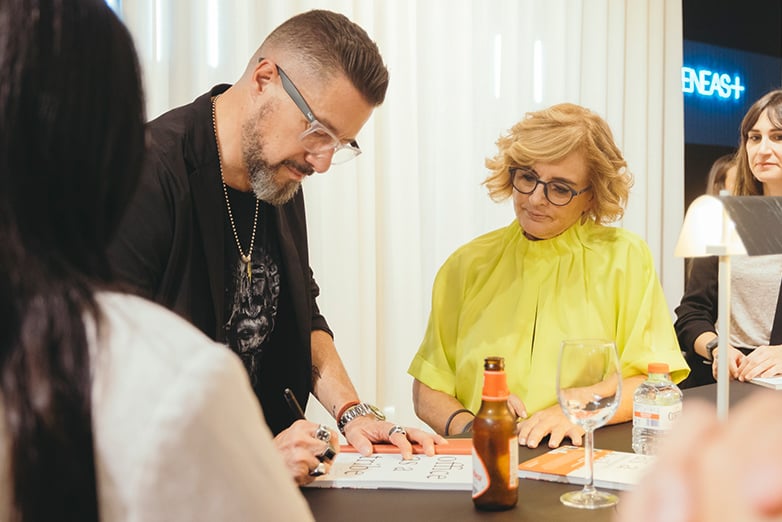
Another of your fields of specialisation is educational spaces. How do we integrate these Phigital generations into the schools and universities we have today?
Someone, from one day to the next, can leave university and go to work at Google and those two physical spaces can be about 50 years apart. You look at a Google office and a university and there is at least 50 years between one and the other.
In most of these organisations, the understanding of space as a tool and the culture shock that a phigital child who can transition between these worlds gets to a place where you sit in a chair, sitting still all day looking straight ahead, not having any kind of mobility....
I think that part of what is going to happen with this transition to this new liquid society is that these little boxes and containers of labels that we were used to are going to disappear, we are going to start to see how the boundaries between different worlds, such as the field of health or education and the office, are blurring.


